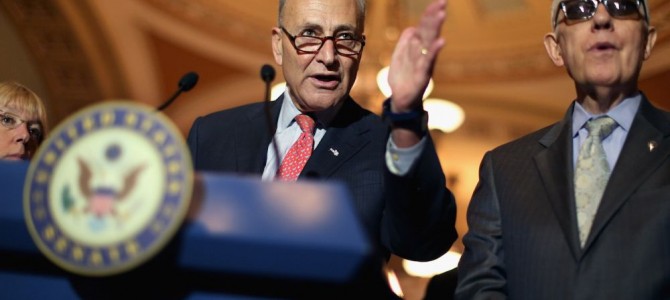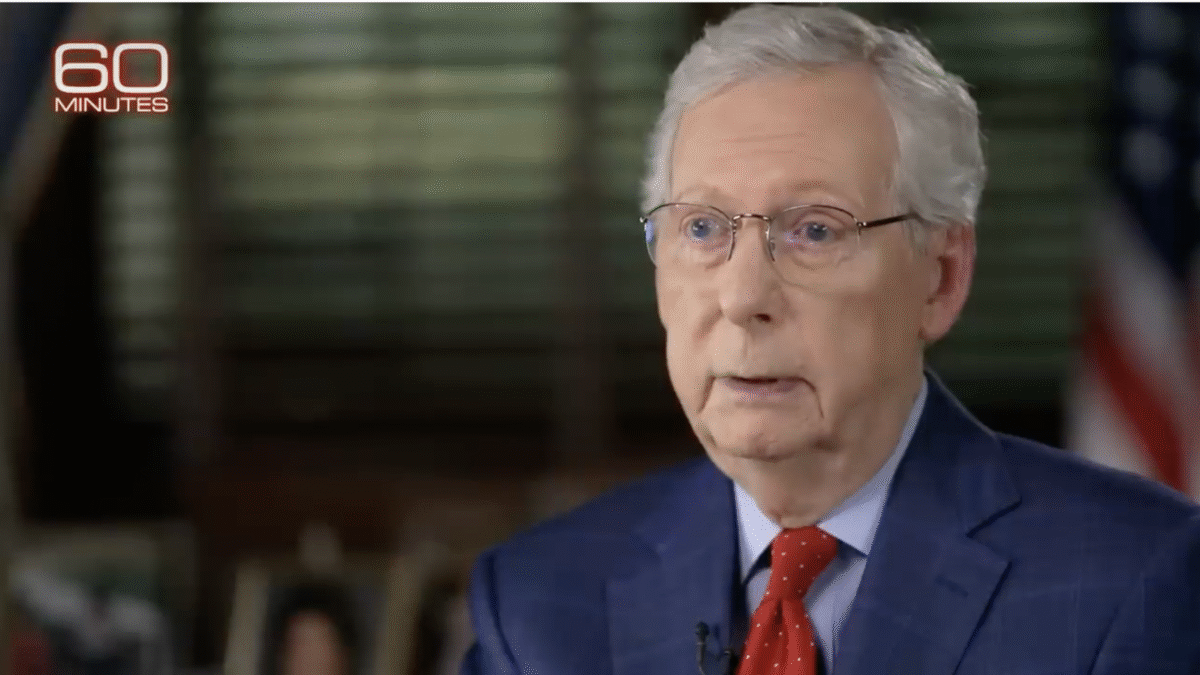
When Ross Douthat suggested President Donald Trump be removed from office via the 25th Amendment, he got both accolades and pushback from both sides of the aisle. His argument, as expressed on Twitter, was this: America’s elites have a responsibility to keep America safe from the unwise choices of Trump voters.
Robert Merry has considered this question thoughtfully over at The American Conservative. He asks whether a broken elite has the right to remove the people’s man from office—especially when that man’s success stemmed primarily from his promises to overthrow the elite’s established order.
Douthat’s argument also prompted a different question on my part. The constitutional government we’ve received from the founders was created with various checks and balances, with a “balance of powers,” that was meant to protect us from (among other things) a “tyranny of the majority.” James Madison described this potentiality in “Federalist Paper” No. 51: “It is of great importance in a republic, not only to guard the society against the oppression of its rulers; but to guard one part of society against the injustice of the other part.”
It’s also a concept Alexis de Tocqueville explored in his classic work, “Democracy In America.” He described our dilemma thus: “The government of the American republics appears to me to be as centralized and more energetic than that of absolute monarchies of Europe. I therefore do not think that it will perish from weakness. If ever freedom is lost in America, one will have to blame the omnipotence of the majority that will have brought minorities to despair and have forced them to make an appeal to material force.”
What ‘Checks And Balances’ Should Do
Douthat’s argument seems to assume that Trump voters constituted an unreasonable—and perhaps tyrannical—majority, one whose influence the elites must now check. But the question we must ask, in response to that argument, is whether Trump voters constitute the tyrannical majority, or whether the elites do.
Obviously, the checks and balances our founders built into America’s system of government are somewhat broken. We’ve vested greater power in American voters, and less in the Electoral College. (Indeed, following Hillary’s loss, many argued for undoing the Electoral College altogether.) At the same time, we have an executive branch of government that’s blossomed into bureaucratic overreach and even kingly control. In Tocqueville’s time, he saw administrative centralization as “nearly unknown.” Such a statement seems laughable now.
Some would look at the former, and argue we’re vesting too much power in the people, priming ourselves for a tyrannical majority. Others look at the latter, and argue instead that the elite and bureaucratic class constitute their own tyrannical majority, one the people must keep in check.
So Who’s In The Wrong: The People, Or Elites?
I think both arguments have their merits. On the one hand, the people who elected Trump constituted a narrow minority: Hillary got the numerical majority in November’s election. One could argue that the Electoral College actually safeguarded America against a sort of urban tyranny, protecting the desires and wishes of rural America. Though it constitutes a wider geographic swath, there are fewer voters (and fewer wealthy voters) in these regions. So there is something to this argument.
However, many look at Trump’s largely white voter base, and argue this is an instance in which one demographic of America constitutes a tyrannical majority against other minority groups. And this would be in keeping with Madison and Tocqueville’s definition of a tyrannical majority, too: they worried one large group could crush the rights and worries of smaller minority groups. This is something minority groups have indeed worried about under Trump’s presidency.
Here’s the dilemma. If America’s elites (influential media, sources within the executive branch, and politicians) find some method to impeach Trump before actual wrongdoing is proved, they’ll make him into a martyr. Voters will be in uproar, incensed at what they see as a form of meritocratic tyranny. If, however, Trump continues to act and speak recklessly without checks or reprimands, that would also be concerning—it would signal an unwholesome use of executive power.
Our Constitution Was Built To Fight Tyranny
So how do we find balance in such a situation?
For now, it seems the best path forward is, indeed, one laid out in the Constitution: there are checks and balances built into the structure of the legislative, executive, and judicial branches. These branches were meant to ensure the interests of all voters, and to protect against tyranny in one or either of the other branches.
Already, there’s a bipartisan coalition in Congress seeking to investigate potential wrongdoing on Trump’s part: looking into past James Comey memos, and supporting independent control of the Russia investigation. That’s good: it’s a sign we can put away partisanship and take a measured view of things. It’s a sign that the branches are still able to do what they were created to do.
But additionally, our branches of government were created to ensure that the interests and needs of the people are properly cared for. This doesn’t just mean the interests of the majority—the people who shout loudest, or the people who win the presidential election—but the voiceless, the disenfranchised, and the disillusioned.
What Congress Could Achieve Amid the Drama
Going forward, it would be amazing (if not miraculous) if Republicans and Democrats in Congress could get together, and say, “Look, we may not agree on everything. But we can agree that bickering over Trump and promulgating Washington drama is making our voters angrier and more bitter than ever. If we can work on a bipartisan agenda—reforming health care, fighting the opioid epidemic, achieving bipartisan immigration reform, bringing back American jobs—while these investigations go on, maybe this can be a successful year for us, after all.”
Sadly, Democrats may not want to do that. They’re learning something now that Republicans learned during the Obama years: namely, that fearmongering is good for business. For eight years, pundits and talking heads got Republicans to believe that Obama was a vicious and evil person who wanted to destroy American democracy at any cost.
Perhaps you recognize that rhetoric being used in the media today. To be clear, I think Obama was personally more wholesome than Trump. But Obama still made mistakes throughout his presidency, and conservative media latched on to every one with glee. It would be a mistake for left-leaning media and politicians—who rebuked conservatives for their blind partisanship over the past eight years—to make the same mistakes now.
Maybe the Swamp Can Do Good, After All
You can dislike Trump and condemn his foolish mistakes without loathing and condemning all conservatives. Donald Trump is not Justin Amash, or Ben Sasse. You can work with the latter, even where you might dislike the former.
This is important, because hating Trump’s guts and getting him impeached may get Democrats some measure of victory in the short-term. But by goading and infuriating the Right, it’s sure to widen the schism between our “two Americas,” and make any sort of reasoned bipartisanship difficult (if not impossible) in future years. It’s sure to entrench the idea among the electorate that the elites are, in fact, America’s tyrannical majority—and that the media and bureaucratic branch of Washington will continue to upbraid and ignore the wishes of many American voters.
Let the Department of Justice, the FBI, and the Senate Intelligence Committee figure out what (if any) wrongdoing has taken place on Trump’s part. In the meantime, let’s focus less energy on outrage and more on measurable, achievable policy measures. Congress and the judicial branch can protect minority voters and voices from being forgotten or wronged. And if they do their job well, they can also appease and satisfy the disillusioned Trump voters.
Yes, Trump will displease and disappoint the people who voted for him—if for no other reason than that he promised too much. But if Americans see Congress working for them (and not blindly kowtowing to or spewing hate at the president), then they’ll see that hope can exist within the “swamp,” after all.








